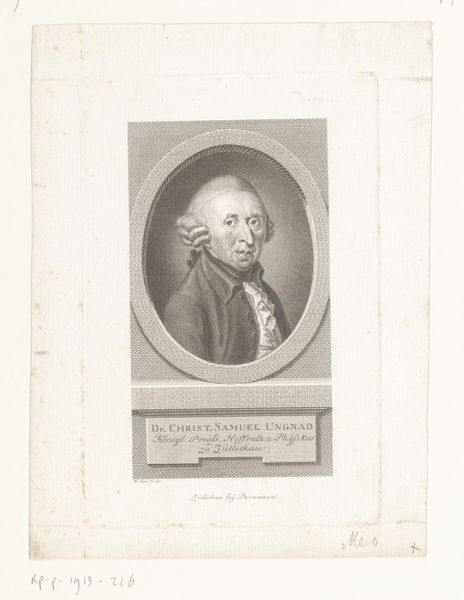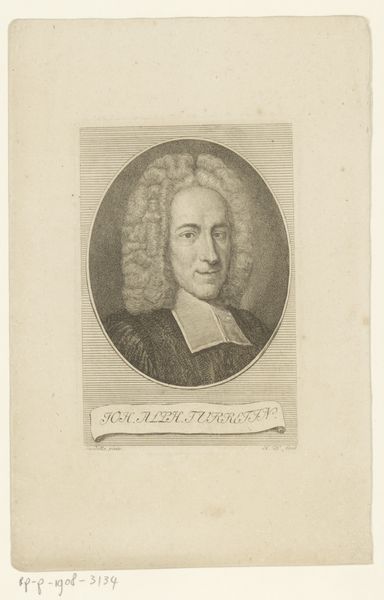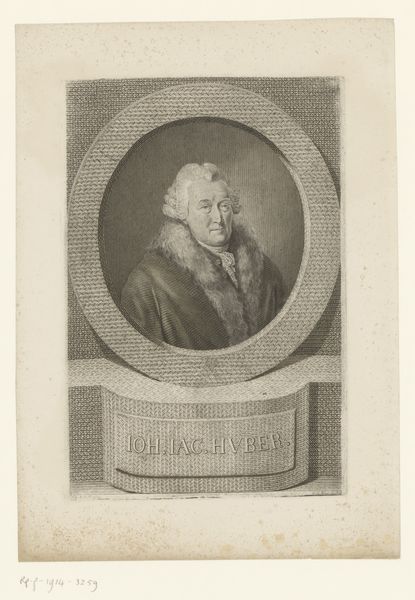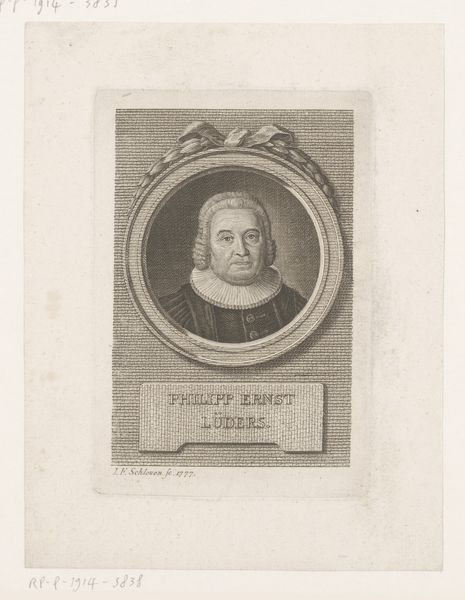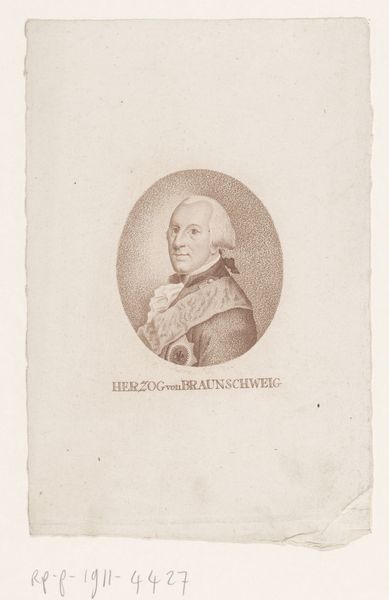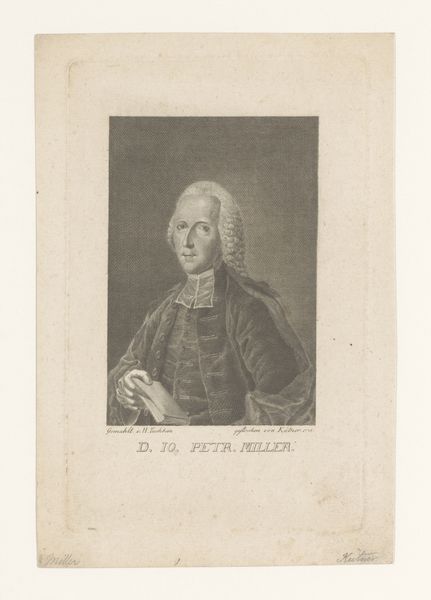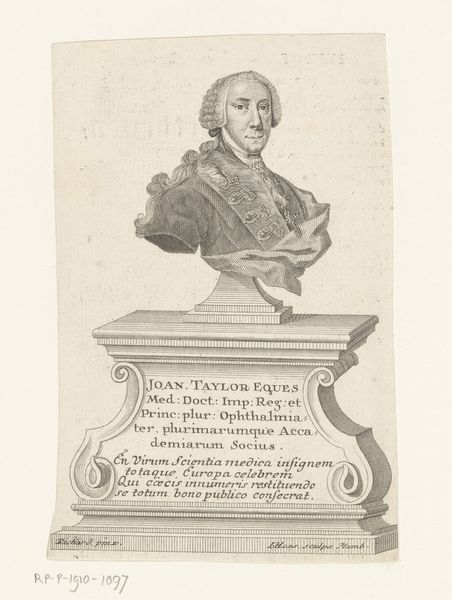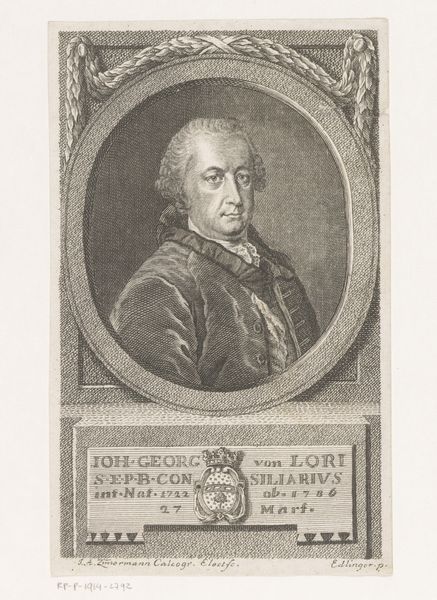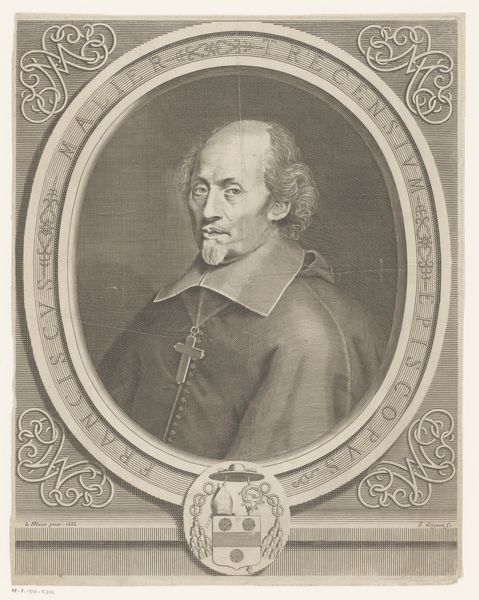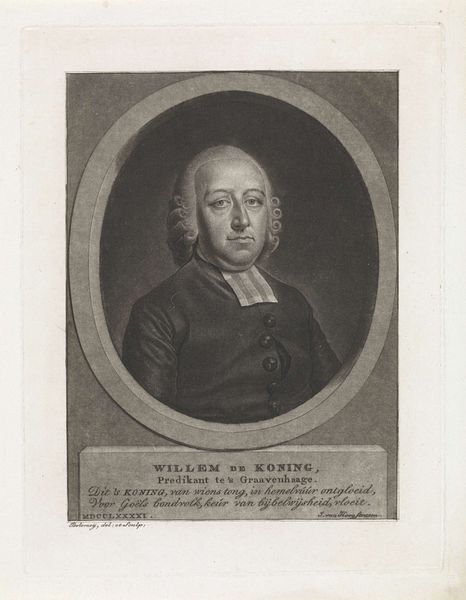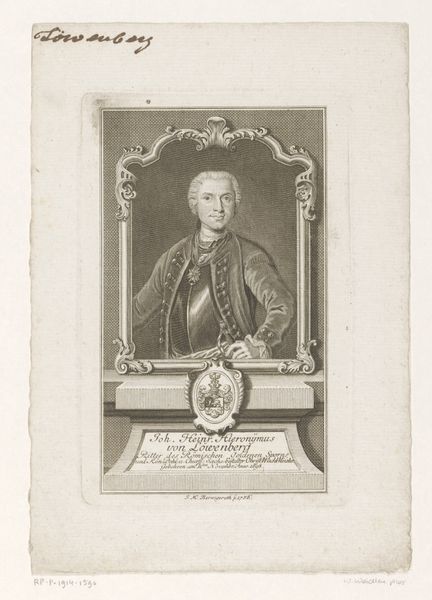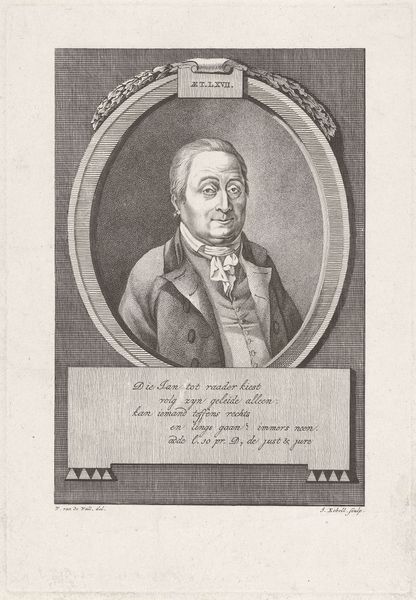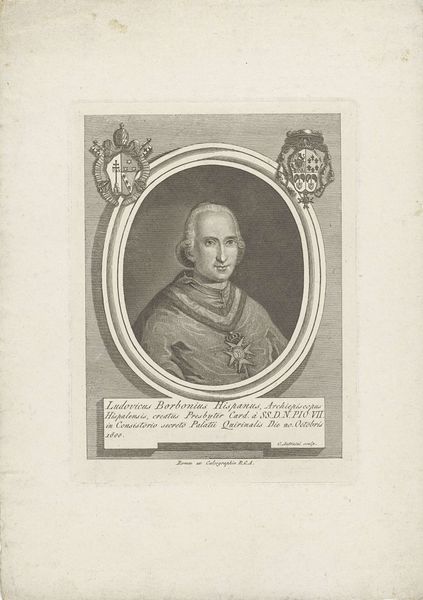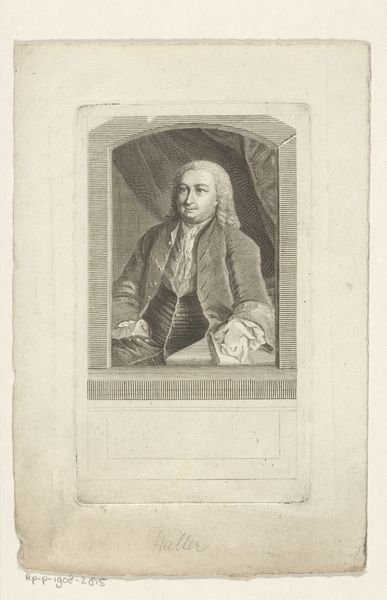
#
pencil drawn
#
photo of handprinted image
#
aged paper
#
light pencil work
#
wedding photograph
#
photo restoration
#
light coloured
#
old engraving style
#
historical photography
#
old-timey
Dimensions: height 174 mm, width 131 mm
Copyright: Rijks Museum: Open Domain
Karl Traugott Riedel created this portrait of Carl Theodor Anton Maria von Dalberg using a technique called stipple engraving. Rather than using lines, stipple engraving relies on thousands of tiny dots to build up an image. Look closely, and you'll see how Riedel carefully manipulated the density and distribution of these marks to create subtle gradations of tone and texture. This painstaking method allowed for a high level of detail, capturing the likeness and character of the sitter. The stipple engraving process was labor intensive, requiring skill, precision, and time. Its popularity in the 18th and 19th centuries coincided with a growing demand for printed images, fueled by an expanding middle class. Prints like these played a crucial role in disseminating information, advertising goods, and shaping public opinion. Considering the material and the making of this print reminds us that images, even those seemingly straightforward, are products of specific technologies, social contexts, and artistic choices. Appreciating these factors allows us to understand this artwork in its fullest sense.
Comments
No comments
Be the first to comment and join the conversation on the ultimate creative platform.
